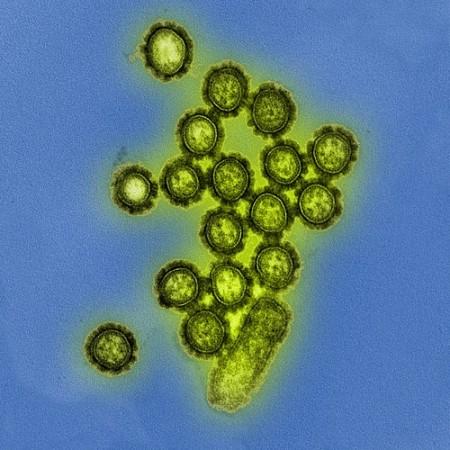
A 40-year-old woman from Tamil Nadu who tested positive for H1N1 last week died at a private hospital in Coimbatore Thursday morning.
The Kottaimedu-based woman, whose name has not been revealed, reportedly contracted swine flu during a visit to her relatives in Kerala, according to The New Indian Express.
She had been undergoing treatment at the G Kuppusamy Naidu Memorial Hospital in Coimbatore since 7 December, when she developed a fever, sore throat and cough.
Health officials had been on high alert after the woman tested positive for H1N1.
"They will be checking for symptoms of fever, cold and cough and distributing Tamiflu tablets that have to be taken in case symptoms begin and get themselves tested for swine flu immediately," deputy director of public health Dr. A Somasundaram told The Times of India, during that time.
Reports show that her 10-year-old nephew, who started swine flu treatment with her, left the hospital after he was cleared of the virus a few days ago, according to a Business Standard report.
The woman, a housewife, was a diabetic patient and her immune system was very weak.
Meanwhile, swine flu continued to cause panic in Hyderabad with three more deaths and eight new cases. The city has reported 53 cases this year, according to NDTV.
A report from Centers for Disease Control and Prevention in the US shows that swine flu outbreaks occur mostly during late fall or winter months. Winter season is more suitable for the virus to spread as the cold climate allows it to survive longer, Dr. Subhakar, a swine flu specialist, told NDTV.
Swine Flu- Know More Facts
Influenza A (H1NI) virus (A/H1N1pdm09) is the main culprit that causes human swine flu.
Nearly 43 million to 89 million people were affected with the 2009-2010 swine flu outbreak in the US. The virus claimed between 8,870 and 18,300 lives at that time, according to Flu.Gov.
The virus was first detected in April 2009 in Mexico and got its name as the strain shared similarities with the virus found in pigs. Symptoms include high fever, sore throat, cough, body aches, diarrhoea, vomiting, fatigue, running nose, headache and chills.
Swine flu is contracted through exposure to contaminated droplets, when a sick person coughs, sneezes or talks.

















